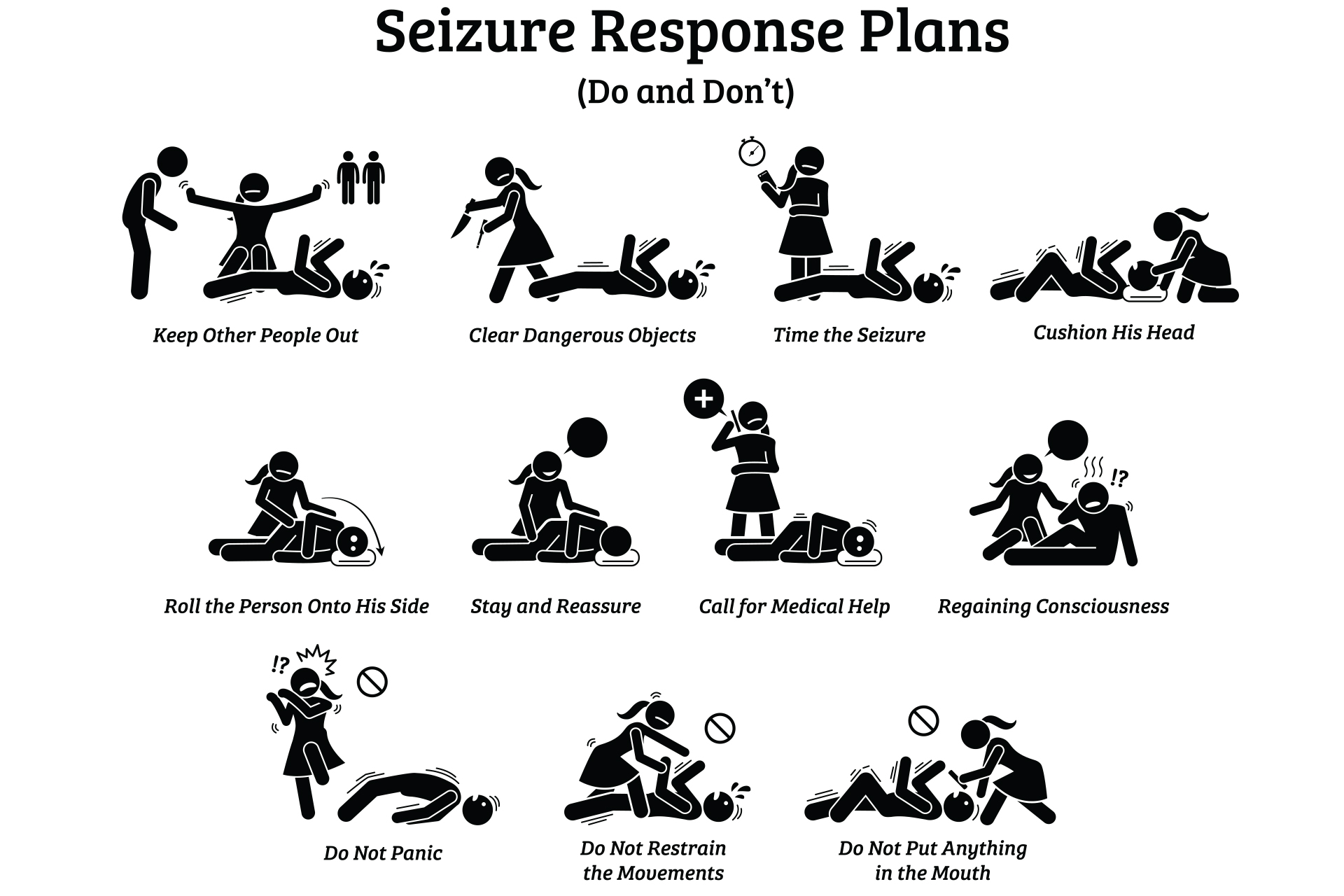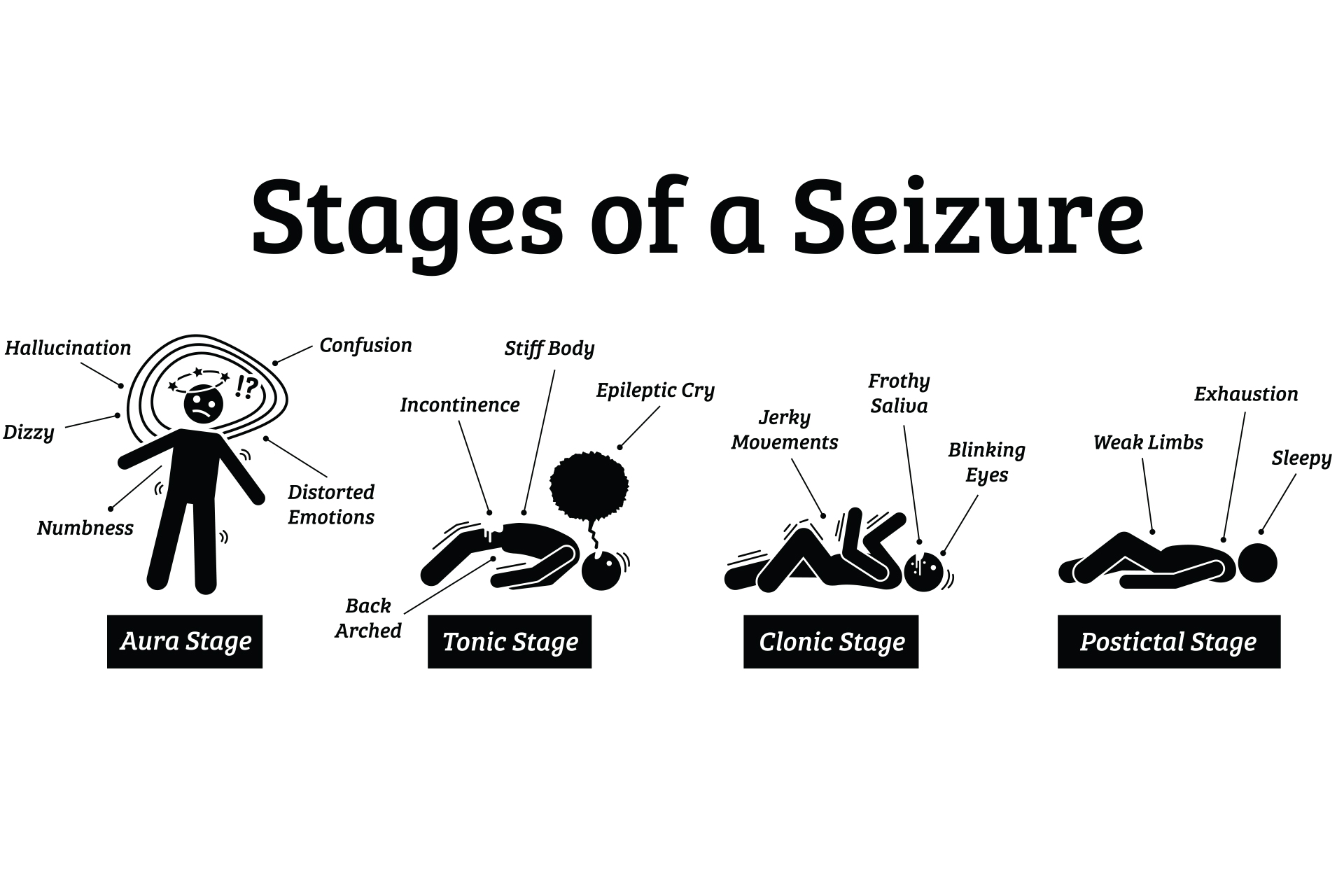Seizure disorders affect 1 out of 10 citizens in the U.S at least once in their lifetime. Although this might be caused by a non-threatening reason, like a mild blow to the head, frequent seizures are not typical, and the root of the cause needs to be detected and treated. Epilepsy frequently goes hand in hand with seizures and needs to be checked by a doctor. In this blog, we will discuss its similarities, differences, causes, and treatment.
Understanding seizure disorders
A seizure is a sudden, spontaneous electrical interference between brain neurons. It may temporarily alter your behavior, movements, emotions, and levels of consciousness. An episode may be transient, meaning it occurs only once due to medication; or chronic, also known as epilepsy.
What is the difference between seizure disorder and epilepsy?
You can have a seizure without having epilepsy, but you can’t have epilepsy without having seizures, even if they don’t cause noticeable symptoms.
A seizure occurs when the brain undergoes an abrupt spike of abnormal activity. It may disrupt specific brain processes or result in an increase in brain activity that produces strange behaviors, perceptions, or experiences.
Different symptoms occur depending on the brain area that is affected. Tonic-clonic episodes, also known as generalized seizures, can affect both sides of the brain and result in shaking, jerking, or repetitive movements like quick blinking.
Doctors sometimes refer to focal seizures as partial seizures because they only affect a small portion of the brain. The signs can be mild—for example, smelling something that isn’t there—or more severe, like the person suddenly losing awareness of their surroundings. Some focal seizures spread and may affect other parts of the brain.
A disorder of repeated seizures is epilepsy. And it can typically be identified:
Getting a proper diagnosis is crucial because some medical conditions that can cause seizures could be fatal.
The patient needs to provide a doctor with a thorough medical history, including information regarding each episode (duration and frequency), any underlying medical conditions, and any recent illnesses or head injuries.
The specific seizure symptoms have less bearing on the diagnosis. For instance, someone may experience several brief, mild seizures while still having epilepsy. This condition lasts throughout a person’s lifetime.
What are the most common symptoms?
The signs may depend on the type of seizure. General symptoms include:
What causes seizure disorders?
Other than epilepsy, some probable causes of seizures include
How can seizure disorders be treated?
The frequency and intensity of the condition, as well as the patient’s age, general health, and medical history, will impact the treatment recommended.
Choosing the optimal medication also requires precise identification of the type of epilepsy.
Anti-epileptic drugs are usually prescribed such as.
These are just a few examples of the medications that could be prescribed for treating seizure disorders. Never auto prescribe or change the medication without consulting a doctor.
Surgery, such as vagus nerve stimulation, may also be used to prevent seizures. The doctor needs to know the exact location of the “starting point” of the seizure in order to proceed with surgery.
How can Signature help a patient with seizure disorder?
At Signature Health Services, we count on a professional medical staff ready to help you or your loved one with this or any other condition. For more information, check out our seizure disorder specialty page or our neurological conditions page to better understand the different types of diseases we can treat.
Call Signature 24/7 at 1 (800) 277-8291 for excellence in skilled and compassionate home health care.

Your Complete Home Health Care Solution!
ALWAYS ON CALL
| Monday – Sunday | 24 / 7 |
1 (800) 277-8291 (option 1)
COUNTIES SERVED
OUR VALUES
TESTIMONIALS

I love all of my home health people.

All Signature staff as well as therapy were very helpful.

Their services have always been great.

I really love my physical therapist. Gary has helped me so much.

This has been one of the best agencies. Very caring nurses.

I’ve had a really good physical therapist and really nice nurses.

I have had excellent care & would recommended them to anyone.

Gary Dixon is the very best physical therapist in Baytown and Houston Area.



